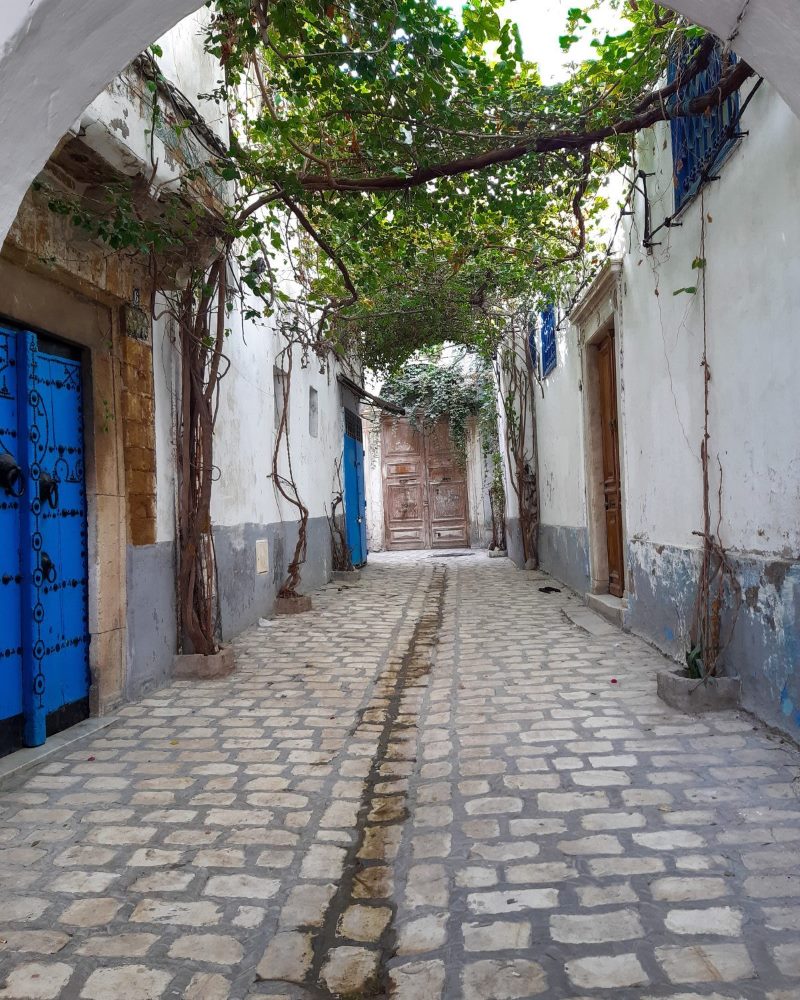Languages Spoken in Tunis – A Comprehensive Guide
Tunis, the capital city of Tunisia, is a fascinating city to explore. It is a unique blend of various cultures and traditions, including linguistic diversity. The official language of Tunis is Arabic, but there are several other languages spoken in this city due to its cosmopolitan nature. In this blog post, we will take a closer look at the various languages spoken in Tunis.
Arabic
Arabic is the official language of Tunisia and is spoken by the majority of the population in Tunis. Tunisian Arabic, also known as Derja, is a dialect of Arabic that is unique to Tunisia. It is a mix of various Arabic dialects, Berber languages, and French, which reflects the nation’s rich cultural history. Tunisian Arabic has evolved over time as a result of various invasions and the city’s interactions with other cultures. You’ll hear Tunisian Arabic spoken on the streets, in shops, and in cafes across the city.
French
French is the second most spoken language in Tunis. This is due to Tunisia’s colonial history and the fact that it is still used as a language of education and business. Many Tunisians, especially those who work in the tourist industry or international business, speak French fluently. You’ll hear French spoken in government offices, tourist centers, and upscale shops and restaurants.
English
Tunis is also home to a large expat community, which has led to the growth of the English language. English is widely spoken in hotels, tourist centers, and restaurants, making it easy for English-speaking tourists to get by in Tunis. English is also the language of instruction in some international schools in Tunis.
Berber Languages
Berber languages, including Tarifit, Tashelhit, and Tamazight, are also spoken in Tunis. These languages are native to the Berber people, who have lived in North Africa for thousands of years. While these languages are less commonly used than Arabic or French, they are still spoken in some areas of Tunis.
Other Languages
In addition to the languages mentioned above, Tunis is home to several other languages spoken by people of different ethnicities living in the city. Italian, German, and Spanish, for instance, are commonly spoken by tourists or expats living in Tunis. There are also some African languages, such as Wolof, spoken by immigrants from West Africa.
Conclusion
Tunis boasts a rich linguistic diversity, reflecting the city’s long and complex history. Arabic is the primary language spoken in Tunis, with French being the second most common language. English, Berber languages, and other languages are also spoken by various communities in the city. As a visitor to Tunis, it is helpful to be aware of the different languages spoken in the city to make your stay more enjoyable and your interactions with the locals more fruitful.
Insider’s Guide to Tunis – The Multilingual City
Tunis is the capital city of Tunisia and is located in North Africa, along the Mediterranean coast. Tunis is home to some of the most beautiful Arabian architecture in the world, and is a hub of history, culture, and language. Tunisians speak many languages, including Arabic, French, and Berber. Here is a comprehensive guide to the languages spoken in Tunis:
Attractions in Tunis
Tunis has a rich history dating back centuries, and in its sprawling city center are ample opportunities to explore its past. Visit the Bardo Museum, which houses one of the largest collections of Roman mosaics in the world, or the Zitouna Mosque – a must-see attraction for any visitor. For a more culture-rich experience, head to the medina, a UNESCO World Heritage site, or to the Sidi Bou Said neighbourhood to soak up the arts and crafts surrounding this blue-and-white reputation.
Dining in Tunis
Tunisian cuisine is a blend of Arabic, Turkish and French influences with plenty of emphasis on spices and herbs. Sample the hot and flavoursome harissa, cooked meats like lamb or chicken, or couscous – the Tunisian staple. Local street vendors sell delicious falafel or ojja, a variation of shakshuka with merguez sausage or seafood. Top it all off with mint tea or a glass of traditional brik with an egg inside.
Understanding Tunisian Culture
Tunisian culture is a mix of different customs that are rooted in its Arabic, African, and French heritage. Music and storytelling have been a significant part of Tunisian culture for centuries. The traditions around Ramadan, the Islamic month of fasting, vary depending on the region, and many wedding or birth ceremonies are steeped in cultural customs. It is only proper to approach in a respectful manner, understanding some cultural differences and sensitivities when it comes to the local customs or the dress code in certain locations.
Local History
Tunis has a vast history which tourists can explore by visiting its World Heritage sites, including The Medina, Dougga, Carthage, and El Deir. Carthage was the dominant power in the Mediterranean’s Western basin until the Roman Empire conquered it in the Second Punic War in 146 BC; the site’s Roman ruins have made it a UNESCO World Heritage site. The Bardo museum is also a significant landmark, showcasing many artifacts dating back to the first Phoenician settlements.
Off-the-Beaten-Path Suggestions
Head to La Marsa, an up–and-coming area, known for its picturesque beach and trendy restaurants. Another destination is the Lake of Tunis, which provides visitors with a panoramic view of the city along its shoreline. Sidi Bou Said, a blue-and-white-washed town perched on a cliff overlooking the Mediterranean, is a quintessential and unique destination to visit in the Tunisian landscape.
Tunis is a city rich in history, culture, language, and charm. Museum-goers, food enthusiasts, or those seeking an authentic Tunisian experience will all be content with the countless opportunities that Tunisia’s capital city has to offer.
Table of Contents

